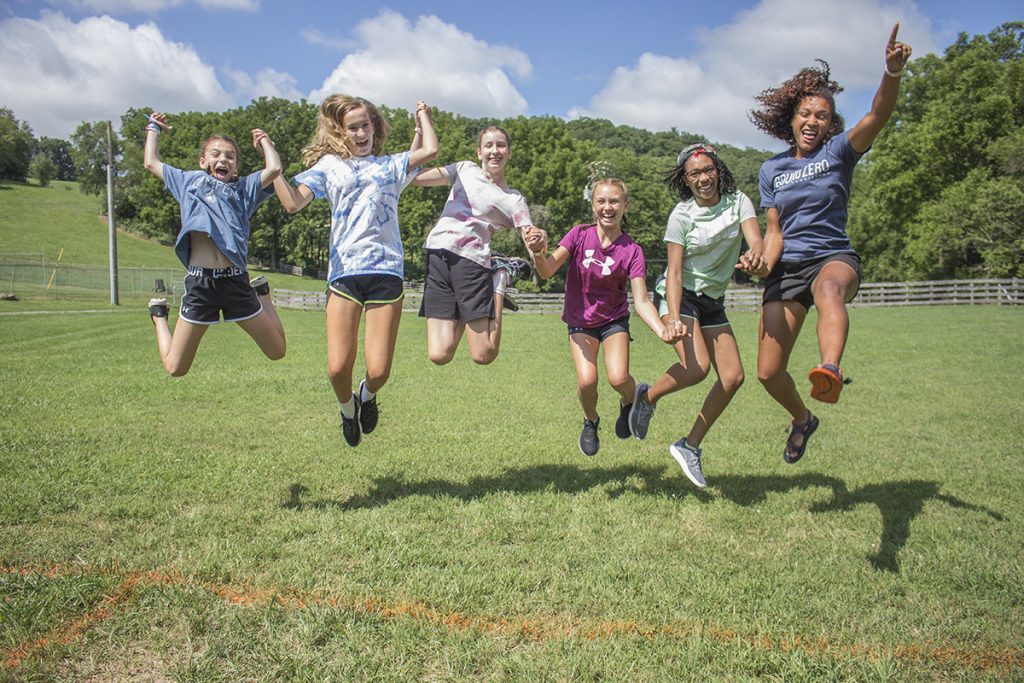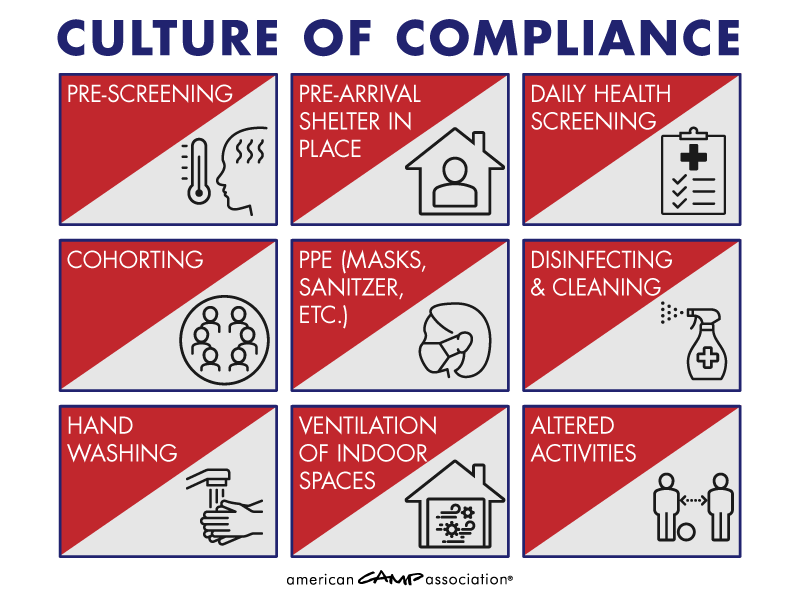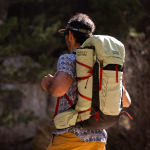Martinsville, IN, August 26, 2020 – Today the American Camp Association (ACA) celebrates the release of a new study from the Centers for Disease Control and Prevention (CDC) that identifies how four overnight summer camps in Maine were able to operate safely and successfully without the spread of COVID-19 this summer.
Integral to these camps’ success was employing a multilayered nonpharmaceutical interventions (NPI) strategy, reflecting adherence to measures outlined in ACA’s educational resource, a Field Guide for Camps on Implementation of CDC Guidance. Each of the NPIs provides a limited layer of protection, but when implemented collectively in a consistent and diligent manner by a camp’s entire community — campers, staff members, and camp parents/guardians — they create a culture of compliance that can prevent and mitigate transmission of disease.
“This study of more than 1000 camp attendees shows promising data that overnight camps can operate safely in the era of COVID-19,” said lead study author Laura Blaisdell, MD/MPH, FAAP. “With this foundational information we look forward to ACA convening wider studies investigating the experience of more diverse camp experiences this year.”
President and CEO of the American Camp Association Tom Rosenberg said, “While safety was the foundation for a successful summer, the camp experience teaches children social-emotional skills for 21st-century learning and leadership. These skills are paramount to persevering in a time of pandemic and beyond.”
Dr. Blaisdell highlights the four participant camps did not restrict attendance from any part of the country or globally. The study’s findings demonstrate that a multilayered public health prevention and mitigation strategy in an overnight camp setting can identify and control COVID-19 transmission, regardless of the prevalence of the virus in campers and staff arriving from various communities.
Rosenberg emphasized the importance of this new report, stating: “This summer, more than 3,000 day and overnight camps ran, serving kids and families in need of fun and engaging time outdoors with friends. Camp provided much-needed time away from technology, with opportunities to thrive socially, emotionally, and physically in a year marked with isolation and unprecedented challenges for every family. Camp was truly the unsung hero of summer 2020 for every kid able to attend.”
Rosenberg followed this statement with exciting news about ACA’s upcoming four research studies focused on camp practices and programs that continued to provide safe and engaging camp experiences this summer by following ACA’s educational resource, a Field Guide for Camps on Implementation of CDC Guidance. “Looking ahead to school this fall, the upcoming research will support educators and after-school programs adhering to ACA’s Field Guide’s suggested practices. Applying multiple layers of NPI’s and leaning into a culture of compliance, even without testing and bubbling, can help any school or organization that brings children together while mitigating spread of the virus.”
In closing, Rosenberg said, “The primary goal of this research is to identify effective practices so that more camps will offer in-person day and overnight programming for summer 2021, ensuring children receive the life-changing camp experiences they need and deserve. Today’s report is positive news for the coming year, and the ACA would like to thank Laura Blaisdell, MD/MPH, FAAP, et. al for this landmark study.”










